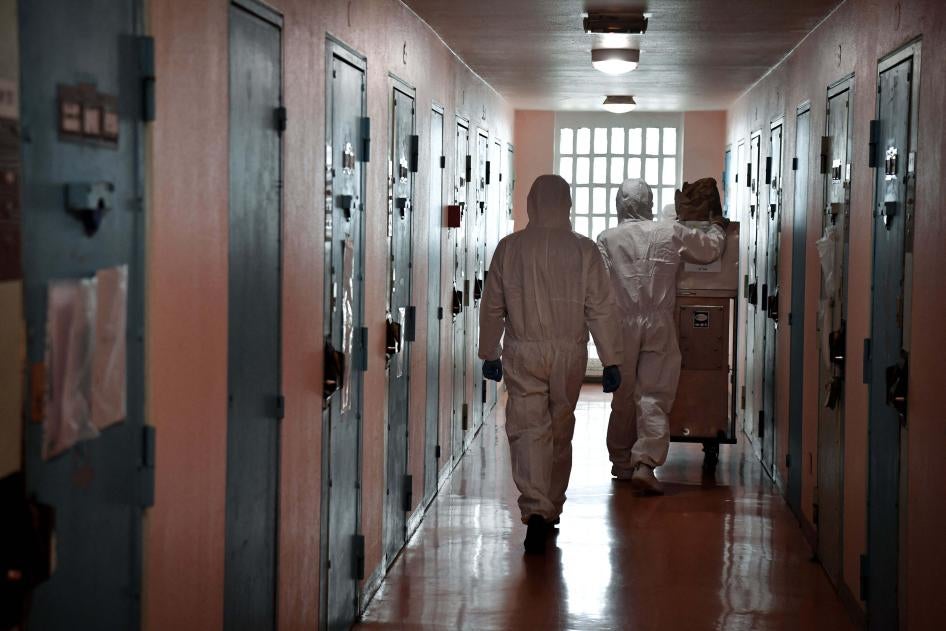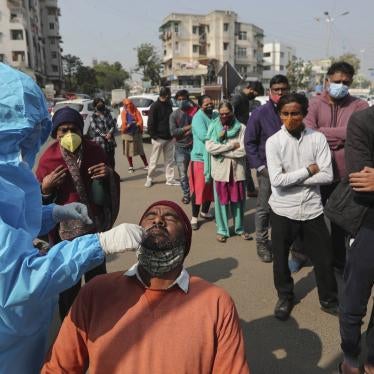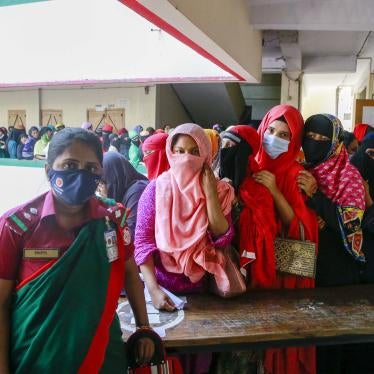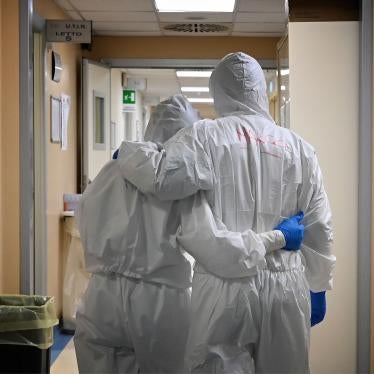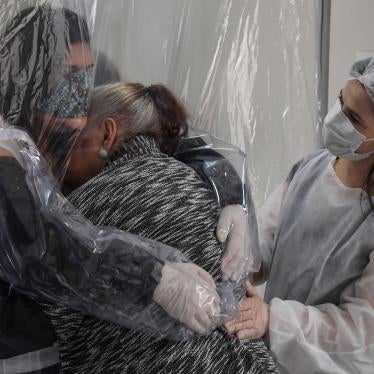(New York) – Many countries around the world are not monitoring and reporting on Covid-19 infection, death, and mitigation efforts in detention settings, health and human rights experts said in a new statement. UN agencies such as the United Nations Office on Drugs and Crime (UNODC) and the World Health Organization (WHO), which have mandates to promote health and human rights and improve prison health, should provide technical assistance and make reporting on Covid-19 mandatory and public to ensure transparency and accountability.
The WHO convened public hearings on April 12, 2022 – only the second time in its history – to seek input on a proposed treaty on pandemic preparedness and response. As negotiations toward a “pandemic treaty” advance, they should include discussion on governments’ human rights obligations to collect and report data on cases among those most vulnerable and those in government custody.
“The World Health Organization has spearheaded global reporting of Covid-19 cases and deaths but has not pushed countries to investigate and report information on Covid-19 in detention,” said Joe Amon, consultant to Human Rights Watch and global health professor at Drexel University’s Dornsife School of Public Health. “Data transparency and accuracy are the first steps toward effective responses and fundamental rights protections, and the World Health Organization has the mandate to make that happen both now and in future health crises.”
Governments have obligations related to transparency, including to collect and provide access to information that can steer policy needed to protect the right to health. But global implementation of any basic reporting practice during the Covid-19 pandemic has been piecemeal at best, the experts said. Between April 2020 and August 2021, only 18 member states submitted a report to the WHO on the status of Covid-19 in their prisons. These reports remain unpublished.
UNODC has a mandate to help countries in “building and reforming their prison systems … in compliance with human rights principles,” and has provided states with a voluntary checklist to assess prison conditions and treatment of prisoners. But it has done little to support countries or to ensure protection of people in detention.
UNODC has no information on the number of cases and deaths due to Covid-19 in detention worldwide, and has offered scant guidance on preventing transmission. In its most recent guidance on Covid-19, the organization used data from the Justice Project Pakistan, a nonprofit organization based in Lahore, which pulled together information on Covid-19 in prisons worldwide from government figures, leaks, and media reports.
Governments have an obligation to ensure medical care for prisoners at least equivalent to that available to the general population. The UN Committee on Economic, Social and Cultural Rights has said that “[s]tates are under the obligation to respect the right to health by, inter alia, refraining from denying or limiting equal access for all persons, including prisoners or detainees, minorities, asylum seekers and illegal immigrants, to preventive, curative and palliative health services.” The UN Human Rights Committee has stated that governments have a “heightened duty of care to take any necessary measures to protect the lives of individuals deprived of their liberty.” This is because when detaining people, the government “assume[s] responsibility to care for their life.”
In his opening remarks during the public hearings on the pandemic treaty, the WHO director General, Dr. Tedros Adhanom Ghebreyesus, said: “The inequities that we have faced in the past two years – for therapeutics, diagnostics, and vaccines – have undermined our efforts to bring Covid-19 under control.” Without transparent and accurate data about Covid-19 in prisons, these gaps in who lives and dies from Covid-19 will only continue to widen, Human Rights Watch said.
“Calls to action at the outset of the pandemic to protect against the spread of the Covid-19 virus in prisons went largely ignored, potentially leading to preventable infections and deaths,” said Edwin Cameron, South Africa’s inspecting judge of prisons. “Over two years later, governments should be transparent about Covid-19 in detention centers and the WHO should ensure that governments do so now and through any future pandemic treaty.”
